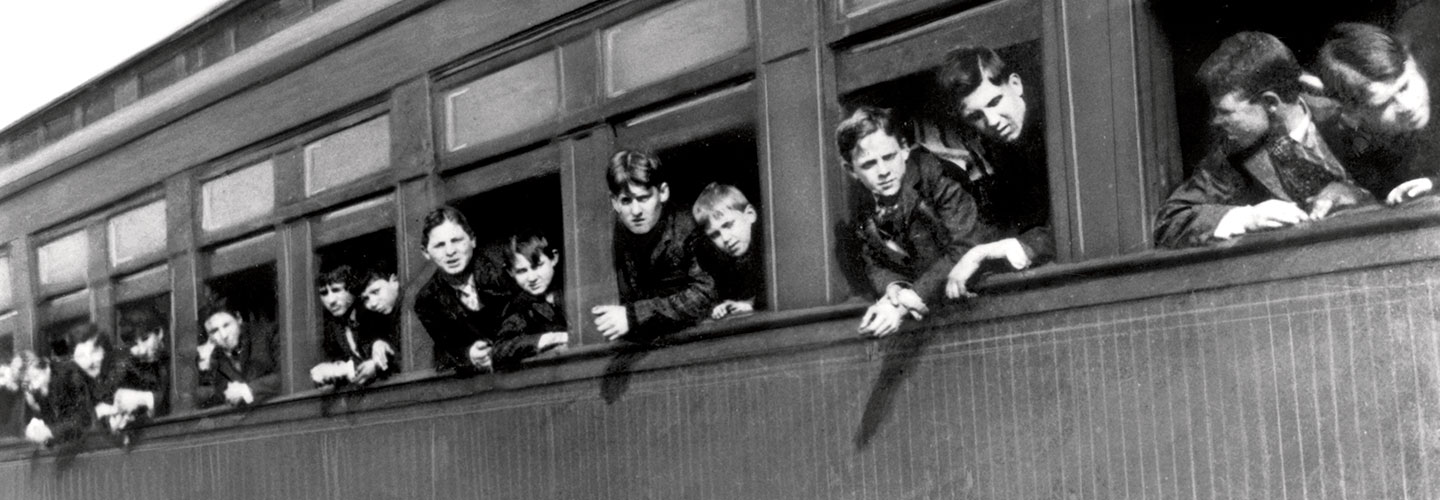Orphan Train Heritage Society of America
From 1854 to 1929, about 200,000 kids were sent west to find new families. Lee was one of them.
It was March 1926. Eight-year-old Lee was on a train. His two younger brothers—Gerald and Leo—were with him. So were 47 other children. All of these children were orphaned or abandoned. A matron watched over them as the train headed west across the United States.
Lee’s mother was dead. His father could not care for his kids on his own. For two years, Lee had lived in an orphanage in New York.
Now, Lee and his brothers were being sent west to find new families. “This is an opportunity for you,” the matron told Lee. “This is an orphan train, and you’re very lucky to be on it.”
Lee didn’t think so. He wanted to go back home. At the train station, Lee’s father had given him a pink envelope. It had his father’s address on it. He told Lee to write to him.
As the train chugged and swayed, Lee dreamed of the day he’d see his dad again.
He was sure his father wanted his sons back.
It was March 1926. Lee was 8 years old. He was on a train. His younger brothers, Gerald and Leo, were with him. So were 47 other kids. All were orphaned or abandoned. A matron watched over them as the train moved west across the United States.
Lee’s mother was dead. His father had lost his job and could not care for his kids. For two years, Lee had lived in an orphanage in New York.
Now, Lee and his brothers were being sent west to find new families. “This is an opportunity for you,” the matron told Lee. “This is an orphan train, and you’re very lucky to be on it.”
Lee didn’t think so. He wanted to go home. At the train station, his dad had given him a pink envelope. It had his father’s address on it. He told Lee to write to him. Lee dreamed of the day he’d see his dad again.
It was March 1926, and 8-year-old Lee was riding a train. His two younger brothers, Gerald and Leo, were with him. So were 47 other children, all of them orphaned or abandoned. A matron supervised the children as the train traveled westward across the United States.
Lee’s mother was dead, and his father had lost his job and was unable to support his kids. For two years, Lee had lived in an orphanage in New York.
Now, Lee and his brothers were being sent west to find new families. “This is an opportunity for you,” the matron told Lee. “This is an orphan train, and you’re very lucky to be on it.”
Lee didn’t feel lucky; he wanted to go back home. At the train station, Lee’s father had given him a pink envelope. It had his father’s address on it. He told Lee to write to him.
As the train chugged and swayed, Lee dreamed of the day he’d be reunited with his father.
He was certain that his father wanted his sons back.

